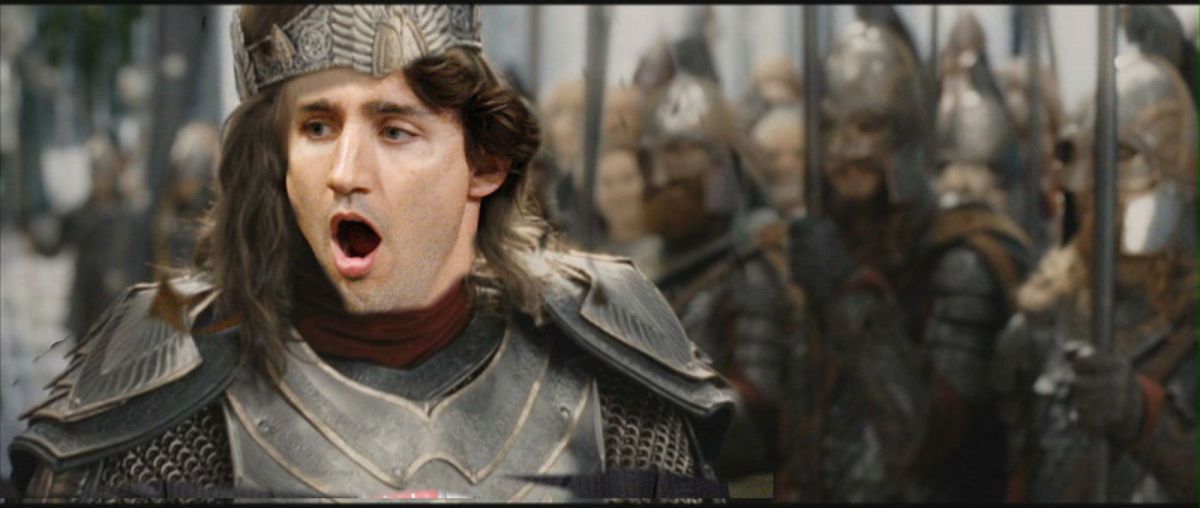I recognize that for a lot of people–even those living in large cities or who are otherwise disconnected from the natural world–climate change still feels like a present and pressing problem. But somewhere in my seven years since moving from British Columbia (the Canadian Rivendell) to New York (an actual burning trash-pile), the future of our planet slipped to the bottom of my priorities.
That wasn’t something I actually recognized until a friend from home visited me this weekend and asked about the environmental activism scene in New York, a question I was totally unequipped to answer. (Turns out “sometimes people sort the recycling out of trash cans in the subway?” and “You can choose not to get plastic cutlery with your delivery!” are unsatisfactory answers when you’re talking to someone studying environmental law.)
I think some of my apathy comes from fear fatigue–climate change is such an overwhelming and seemingly unsolvable problem, and the consequences of failure so dire, that I resort to thinking ”Elon Musk will figure it out” rather than considering the very real and very scary permanent implications for the future of our species.
But rejecting or postponing concerns about the climate can be a symptom of privilege, as well. Noticing the natural world is like noticing your own body–it’s easy to ignore as long as everything’s functioning smoothly in the short-run, but if food or clean water were an immediate problem for me, you can bet I’d see the value in taking action on global warming now.
Unfortunately, I’m not alone in my apathy. As President Obama and other world leaders gather in Paris today to take action at the COP21 climate change conference, a new ABC News/Washington Post poll shows that American are increasingly less interested in politicians taking action to end climate change. Of the people called for the poll, only 47% said they feel the government should be doing more to end climate change.
In honor of COP21, Margaret Atwood has a piece up on Gizmodo entitled “The War Against Climate Change Is Our Battle for Middle Earth.” Atwood, long an advocate for environmental protection, writes:
When I was asked to do a piece for Gizmodo and io9, I confess I went a bit silly. I had the idea of describing a Lord of the Rings parallel universe, using the climactic scene in which the Dark Tower tumbles down, the Nazguls perish, the Ring is destroyed, the good guys win, and a new day dawns.
All of this would have related to the recent Canadian election, in which a government hostile to the mere notion of “climate change” was voted out, and a new government willing to at least make planet-friendly noises came into power.
It would have gone something like this:
The Day The Climate Changed in Northern Middle Earth
Gather round, children, and I will tell you a tale of a mythical time, in the land of the beer-drinking, hockey-playing, tuque-wearing, little fur-footed people of the Great White North Blank-on-the-Map.
On that far-off legendary day in October, the little fur-footed people, oppressed for a hundred years — it was only ten years, but it felt like a hundred — crouched in their darkened burrows, watching as the battle that would decide their fates unfolded on the far-seeing screens.
As the Tide of Liberal Red washed across the map from East to West, the Eye of Mordor in Ottawa blinked, and the Ring of Power slipped from view; and the Iron Bubble imprisoning the Castle on the hill cracked and shattered, and many undead Nazguls, including several Cabinet Ministers, plummeted down in flames; and a grey cloud in the shape of a menacing hand stretched out, shredding many papers; but winds from the East and the West and the North and the South swept the cloud away. And there was much wailing among the Trolls; and some vanished into clefts in the rocks and some into the consulting firms.
Atwood’s Middle Earth analogy expands to reference the “young king” Justin Trudeau and the challenges he’ll face at COP21 if he wants to enact real change and help undo the terrible environmental legacy left by Harper’s government.
I absolutely recommend checking out Atwood’s article for a jolt of reality and inspiration from a nerdy genius, as well as insight into COP21 and Canada’s role in taking action on climate change. Her piece is also an interesting example of fiction’s potential to motivate. Although Atwood warns that climate change is “not a fairy tale,” stories like “The Day the Climate Changed” or her speculative fiction novel Oryx and Crake can enact real change by releasing us from paralyzing fear while highlighting the urgency of an issue.
Thoughts, gang?
(via Wired, image via veesees on Flickr)
—Please make note of The Mary Sue’s general comment policy.—
Do you follow The Mary Sue on Twitter, Facebook, Tumblr, Pinterest, & Google +?









Published: Dec 1, 2015 02:57 pm